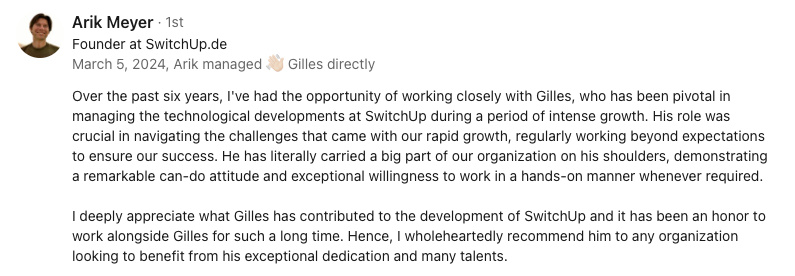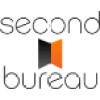Abstract:
The article emphasizes the importance of cultural intelligence (CQ) in navigating multicultural teams, particularly in decentralized workplaces such as European tech startups. CQ, comprising cognitive, motivational, and behavioral components, is vital for effective communication and teamwork across different cultural settings. It helps organizations embrace diverse perspectives, fostering innovation and collaboration. The article illustrates how CQ can address biases like stereotyping and ethnocentrism, enhance employee engagement and retention, and become a core strategic element for businesses aiming to thrive in culturally diverse environments. Real-world examples, such as Spotify's squad model and Wise's open communication strategies, demonstrate the competitive advantages that CQ can provide. Strategies for developing CQ include cross-cultural training, inclusive leadership, and leveraging technology such as AI-driven tools and VR experiences to enhance cultural understanding. Overall, the integration of CQ into organizational culture not only boosts creativity and business success but also improves global reach and employee satisfaction.
Navigating multicultural teams can be challenging, especially with the rapid growth of decentralized workplaces. Cultural intelligence (CQ) is becoming essential for success, particularly in European tech startups where diverse teams are prevalent. Embracing different perspectives enhances teamwork and sparks innovation. Let's explore how CQ can transform the way we work in these dynamic environments.
Cultural Intelligence and Its Role in Decentralized Workplaces
Understanding cultural intelligence (CQ) is crucial for thriving in today's diverse workplaces. This is particularly true for European tech startups, where multicultural teams are the norm. By fostering an environment that celebrates diverse perspectives, organizations can unlock innovation and teamwork.
Understanding Cultural Intelligence
Cultural intelligence (CQ) involves working effectively across different cultures, encompassing cognitive, motivational, and behavioral components. Each component aids in managing multicultural environments. From my experience with a multicultural team in Beijing, I've witnessed the importance of these components. Cognitive CQ involves understanding cultural norms, which facilitates communication. Motivational CQ is about the desire to engage with different cultures, fostering team spirit. Lastly, behavioral CQ involves adapting actions to fit cultural settings, minimizing misunderstandings.
Cognitive Component of CQCognitive CQ focuses on understanding cultural norms and practices to enhance communication. In multicultural teams, knowing team members' backgrounds can improve teamwork. This understanding bridges cultural gaps, facilitating better interactions. Beyond understanding, motivation is key to cultural engagement.
Motivational Component of CQMotivational CQ drives engagement in multicultural environments, encouraging team members to connect and create a cohesive team. It builds emotional investment in appreciating cultural diversity, which is crucial for strong teams. Finally, let's examine how behavior adapts in diverse settings.
Behavioral Component of CQBehavioral CQ involves adapting behavior to different cultural contexts, essential for communication and minimizing misunderstandings. By adjusting actions to fit various cultural norms, team members communicate more effectively, reducing conflicts. The combination of cognitive, motivational, and behavioral CQ highlights the importance of developing cultural intelligence, especially in diverse workplaces.
Cultural Intelligence in Decentralized Workplaces
In decentralized workplaces, cultural intelligence is vital for effective communication by recognizing and valuing diverse perspectives. European tech startups benefit from CQ, as they often have varied cultural backgrounds. CQ helps bridge communication gaps, ensuring all voices are heard while also addressing EU-specific compliance issues like GDPR.
Leveraging CQ for InnovationEuropean tech startups, with their diverse teams, use cultural intelligence to enhance teamwork and drive innovation. Embracing diverse insights fosters creativity and collaboration. This diversity, paired with cultural intelligence, leads to innovative problem-solving and a competitive edge in tech. However, biases can be a challenge.
Overcoming Biases with CQCQ helps address biases like stereotyping and ethnocentrism, which can hinder teamwork. By promoting open dialogue and training, teams can overcome these biases, leading to inclusive and effective collaboration. Recognizing and addressing biases through CQ not only improves team dynamics but also fosters an innovative environment. Consider implementing specific steps, such as regular workshops and feedback sessions, to actively counteract these biases.
Benefits of Cultural Intelligence in Decentralized Teams
Cultural intelligence is transformative in today's decentralized workplaces, especially in tech. When teams are spread across different regions and cultures, high CQ is key to improving collaboration, sparking innovation, and boosting engagement.
Enhancing Team Collaboration and Communication
Understanding cultural intelligence boosts team collaboration and communication. High CQ helps team members appreciate diverse perspectives, enhancing performance and innovation. This means interpreting cultural cues better, leading to smoother interactions and stronger team unity. For example, a project manager might use CQ to recognize cultural influences on communication styles, adjusting meeting formats to include diverse input, resulting in more inclusive discussions.
Acknowledging cultural nuances prevents conflicts and fosters cooperation. When team members understand and adapt to cultural cues, like hierarchy or communication styles, they reduce misunderstandings. By appreciating cultural differences, teams can harness their diversity, leading to effective working relationships.
Driving Innovation Through Diverse Insights
Innovation thrives in culturally diverse teams with high CQ. By embracing varied insights, these teams generate a rich mix of ideas that drive innovation. CQ enables teams to use cultural diversity as an asset, bringing fresh ideas that might not emerge in uniform groups. Successful multicultural tech teams show how incorporating diverse viewpoints leads to breakthroughs, offering advantages in fast-evolving markets.
CQ's value isn't just theoretical; success stories highlight its role in fostering creativity. Tech leaders who prioritize cultural intelligence see significant innovation advancements. Companies embracing culturally intelligent strategies often report increased creativity and efficiency, underscoring CQ's role in business success. In these environments, creative problem-solving is inspired by diverse cultural perspectives.
Improving Employee Engagement and Retention
Cultural intelligence boosts employee engagement and retention. By fostering an inclusive environment where everyone feels valued, organizations can significantly increase engagement. High CQ enhances morale, making employees feel respected and understood, leading to better job satisfaction and loyalty. This results in higher retention, as employees stay where they feel appreciated.
Embedding CQ into organizational culture furthers these benefits. Companies incorporating cultural intelligence into their core strategies improve job satisfaction and reduce turnover. Implementing cross-cultural training and embracing diverse leadership styles are effective ways to embed CQ into daily operations. These strategies create a supportive atmosphere that values diversity, leading to a more engaged workforce.
Developing Cultural Intelligence: Strategies and Tools
Enhancing cultural intelligence in teams is crucial for success, especially in tech-driven, multicultural environments. Here are some strategies to cultivate this key skill.
Cross-Cultural Training and Inclusive Leadership
Cross-cultural training programs equip team members for effective collaboration in diverse teams. This training enhances cultural awareness and adaptability, ensuring team members navigate cultural contexts with ease. Workshops highlighting cultural nuances and addressing stereotypes improve team dynamics. This educational approach helps team members appreciate cultural differences and reduces conflicts.
Inclusive leadership is essential for fostering an environment where diverse cultural perspectives thrive. An inclusive leader values input from all team members, ensuring everyone's voice is heard. This leadership style cultivates a culturally intelligent team and drives engagement and innovation. By promoting inclusivity, leaders encourage cultural intelligence development in organizational culture, enhancing team cohesion and effectiveness.
Leveraging Technology for Cultural Learning
Technology is a powerful ally in promoting cultural learning. Consider these tools:
Virtual Reality (VR) and Augmented Reality (AR): These offer immersive cultural experiences that enhance understanding and empathy. By simulating real-world scenarios, these technologies provide firsthand insights into different cultural settings, promoting deeper engagement and learning.
AI-Powered Tools: These support communication and cultural exchange in decentralized teams. AI-driven translation tools overcome language barriers, ensuring effective communication across diverse teams. Beyond translation, AI provides cultural interaction tips, helping team members navigate complex dynamics adeptly.
Integrating these technologies enhances cultural engagement and understanding, fostering a collaborative workplace.
Real-World Success Stories in Cultural Intelligence
Success Stories from European Startups
Some European tech startups are redefining success by integrating cultural intelligence into their operations. Companies like Spotify and Wise emphasize cultural awareness and diversity, boosting collaboration and innovation. Spotify's squad model fosters an environment where cultural diversity is celebrated, promoting adaptation and agility. Wise focuses on open communication and local market insight, highlighting the importance of diverse teams. These companies demonstrate how cultural intelligence leads to smoother collaboration and innovation, contributing to market success.
Integrating cultural intelligence provides startups with competitive advantages. Embedding cultural insights into strategic planning helps companies understand and serve diverse customer bases, leading to business growth. These integrations help startups tap into new markets and stay ahead. This creates a business environment where innovation is fueled by diverse perspectives, maintaining competitive advantages through understanding cultural dynamics.
Lessons from Tech Leaders
Tech leaders in Europe have learned that prioritizing cultural intelligence enhances team performance and drives innovation. Leaders focusing on CQ create environments where diverse insights foster innovation. This enhances team performance and unlocks creative problem-solving potential. Culturally intelligent leadership fosters trust and collaboration, leading to a harmonious workplace and boosting productivity.
Moreover, culturally intelligent leaders adapting strategies to local contexts improve global reach and employee satisfaction. Recognizing cultural nuances ensures teams are inclusive and strategies align with local needs. This approach helps businesses expand globally while maintaining employee satisfaction. Strategic adaptations improve global market strategies and contribute to higher employee engagement and retention.
Challenges and Solutions in Enhancing Cultural Intelligence
Developing cultural intelligence requires overcoming biases and communication hurdles. Here, we explore key challenges and solutions for nurturing an inclusive and effective work environment.
Overcoming Biases and Fostering Open Communication
Overcoming biases like stereotyping and ethnocentrism is a primary challenge in multicultural teams. These biases hinder CQ development and teamwork. Stereotyping attributes generalized traits to cultural groups, leading to misunderstandings. Ethnocentrism obstructs appreciation of diverse perspectives. Organizations can implement diversity and inclusion training programs to tackle these issues. Workshops challenging biases and encouraging dialogue foster an inclusive culture, enhancing collaboration.
Enhancing open communication boosts team dynamics and effectiveness. Cultural awareness training increases understanding of diverse norms and promotes inclusivity. Training encourages open communication, ensuring everyone's perspectives are valued. This framework fosters respect and collaboration. Organizations can conduct regular training focusing on cultural nuances, encouraging meaningful dialogue, improving dynamics, and creating a harmonious workplace.
Ensuring Cultural Intelligence as a Core Strategy
Integrating cultural intelligence into an organization's strategy is vital for success. Regular training and diverse leadership teams embed CQ into strategic planning. Ongoing cross-cultural training enhances employees' awareness and adaptability. Diverse leadership ensures varied perspectives are considered, enhancing creativity and innovation. These strategies show a commitment to integrating CQ into the organization.
Technology supports these efforts by promoting inclusivity with CQ principles. AI-driven translation services and collaborative platforms facilitate communication across diverse teams. Aligning company policies with CQ principles ensures technology bridges cultural gaps. This promotes inclusivity and keeps cultural intelligence at the forefront of strategy, supporting a cohesive and adaptable work environment.
Embracing cultural intelligence is more than a business strategy—it's essential for thriving in diverse workplaces. By developing CQ, organizations can tap into diverse perspectives that boost collaboration and innovation. The cognitive, motivational, and behavioral aspects of CQ enhance communication and drive creativity. Consider how your workplace could benefit from cultural intelligence.














